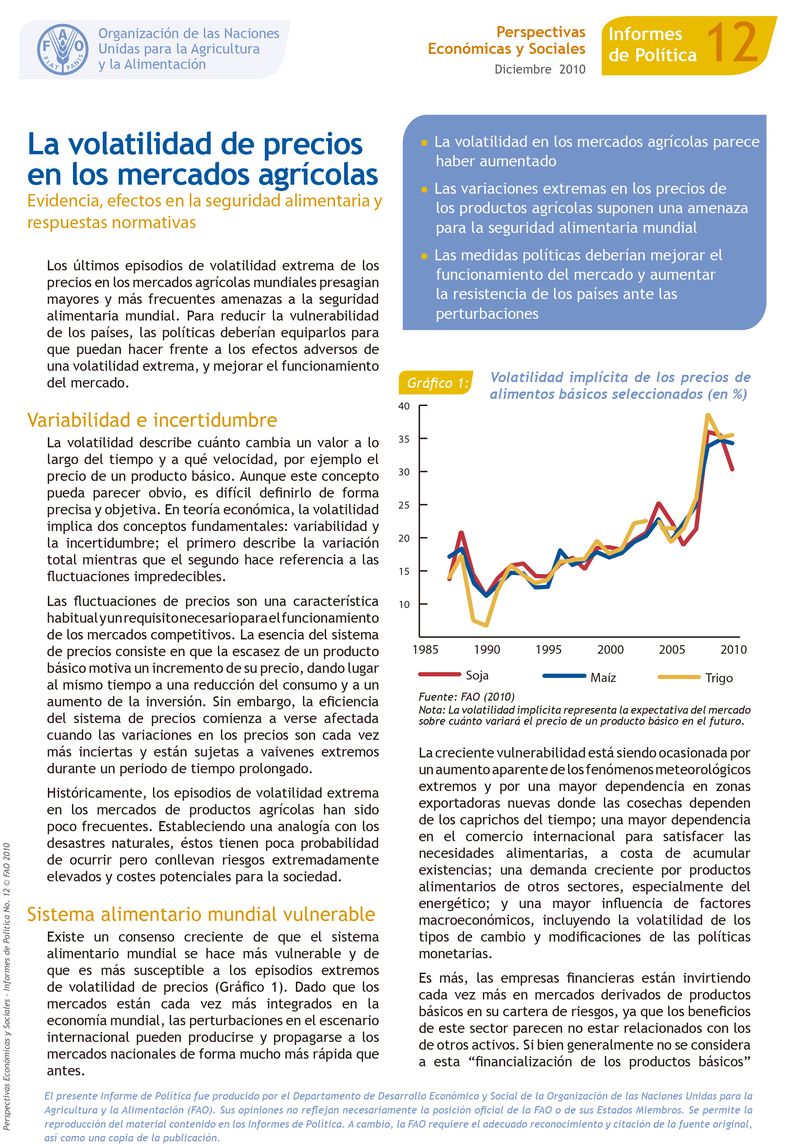INFORMES DE POLITICA 12: La volatilidad de precios en los mercados agrícolas
Los últimos episodios de volatilidad extrema de los precios en los mercados agrícolas mundiales presagian mayores y más frecuentes amenazas a la seguridad alimentaria mundial. Para reducir la vulnerabilidad de los países, las políticas deberían equiparlos para que puedan hacer frente a los efectos adversos de una volatilidad extrema, y mejorar el funcionamiento del mercado.


